1 where the tests came from
2 compilation back to the legislative english ("isomorphism")
3 and to saner natural language (thanks @mattwadd)
4 concrete goal-solving, explained in detail
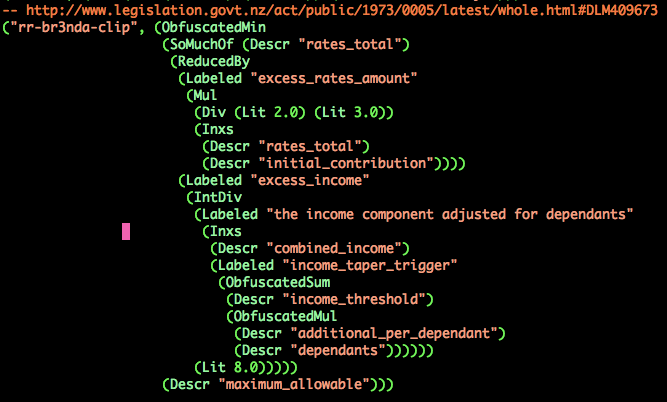
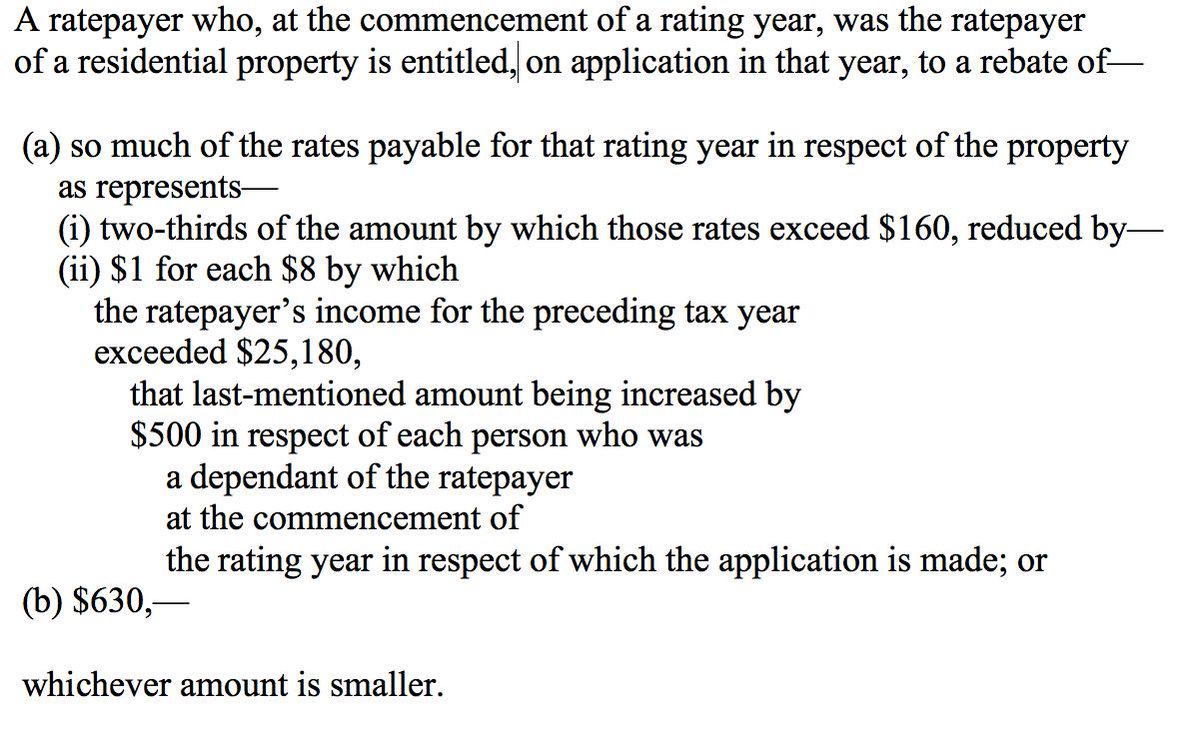
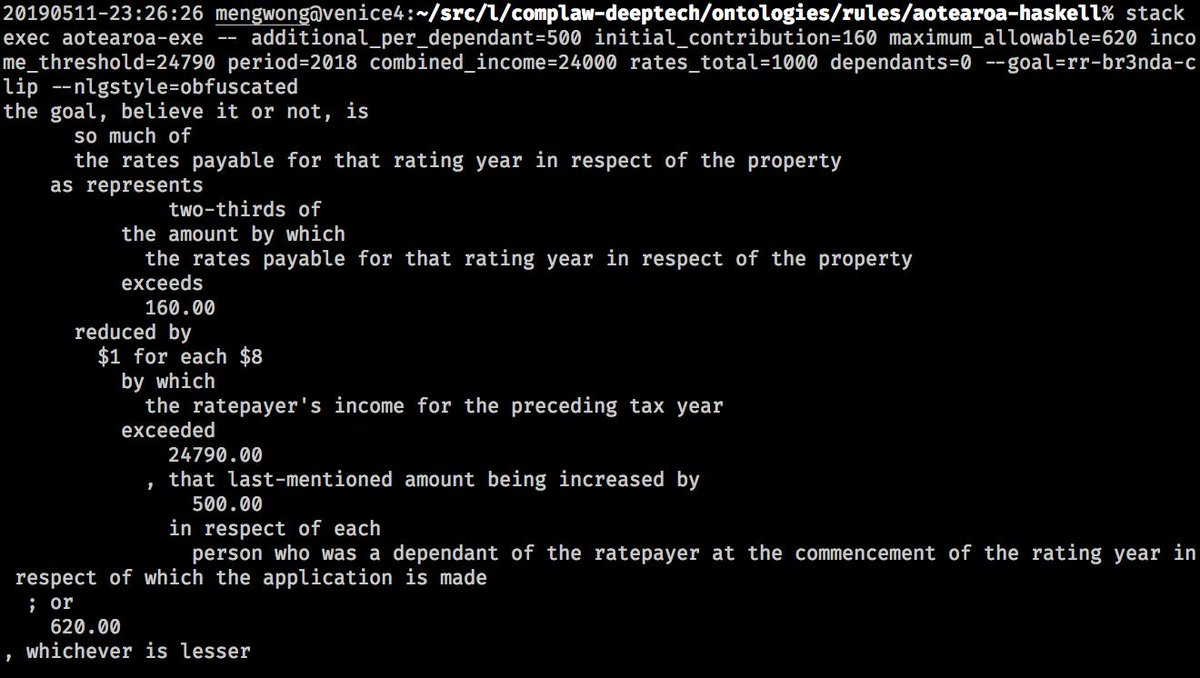
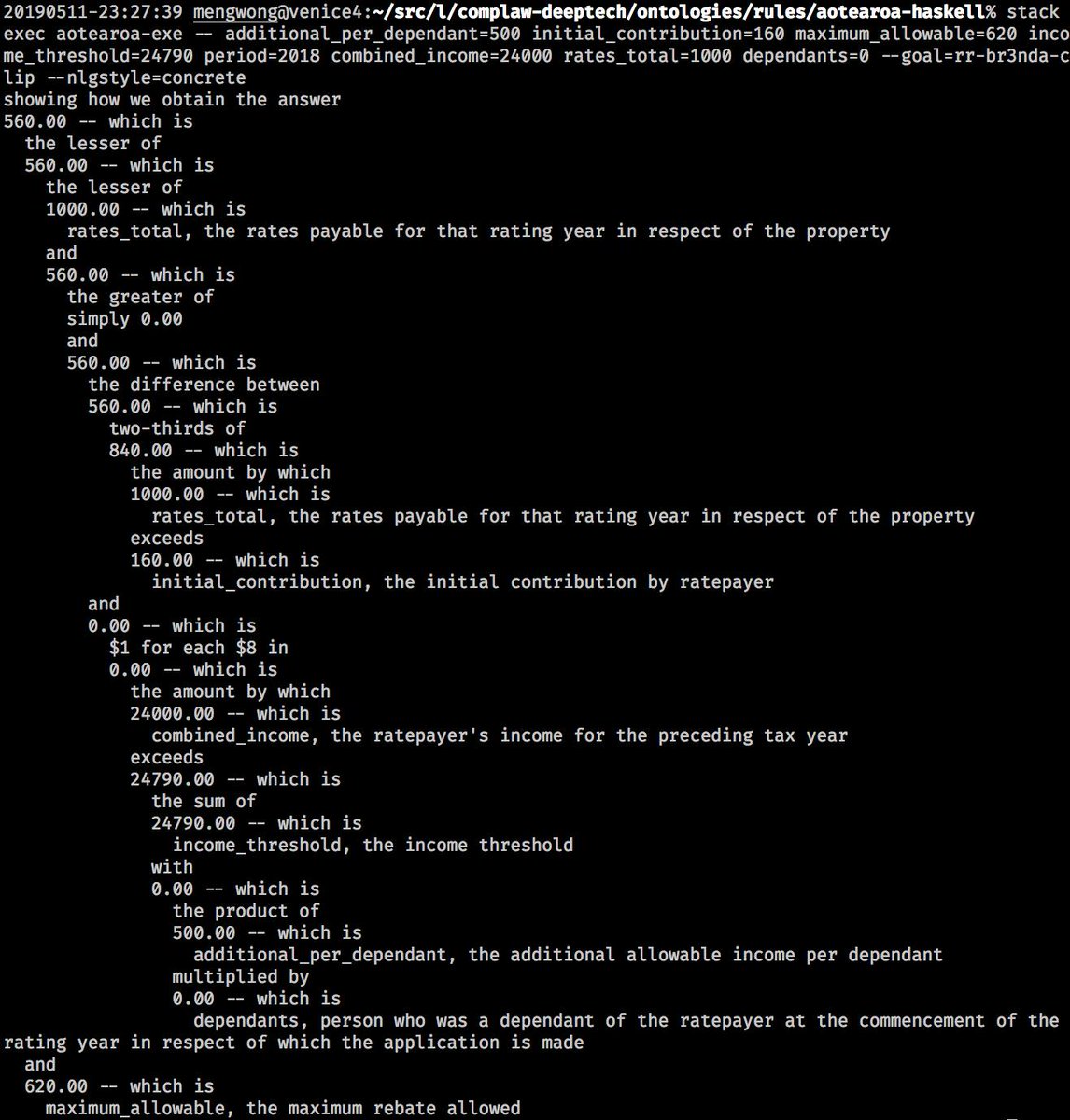
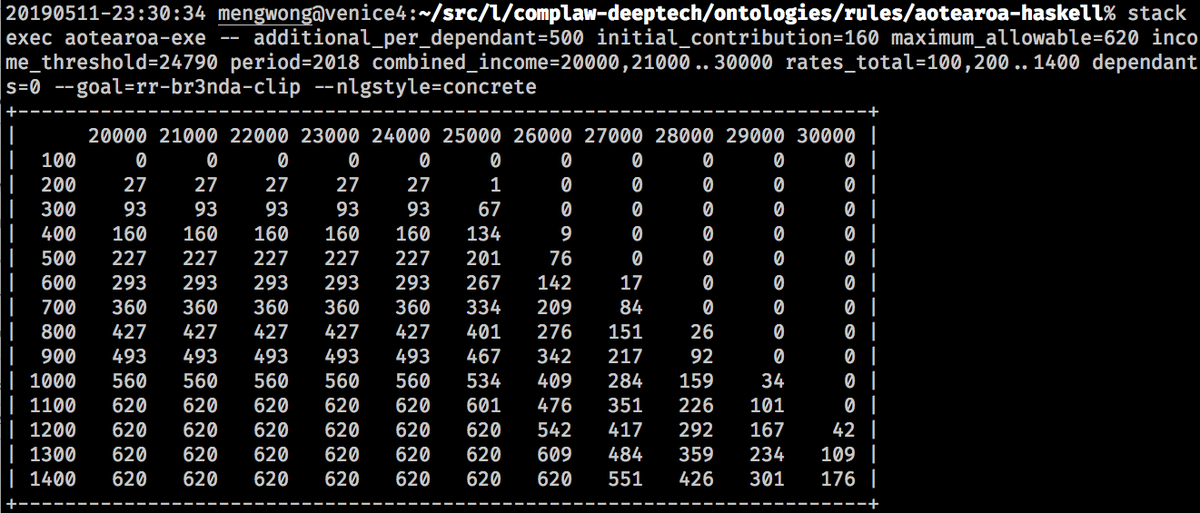

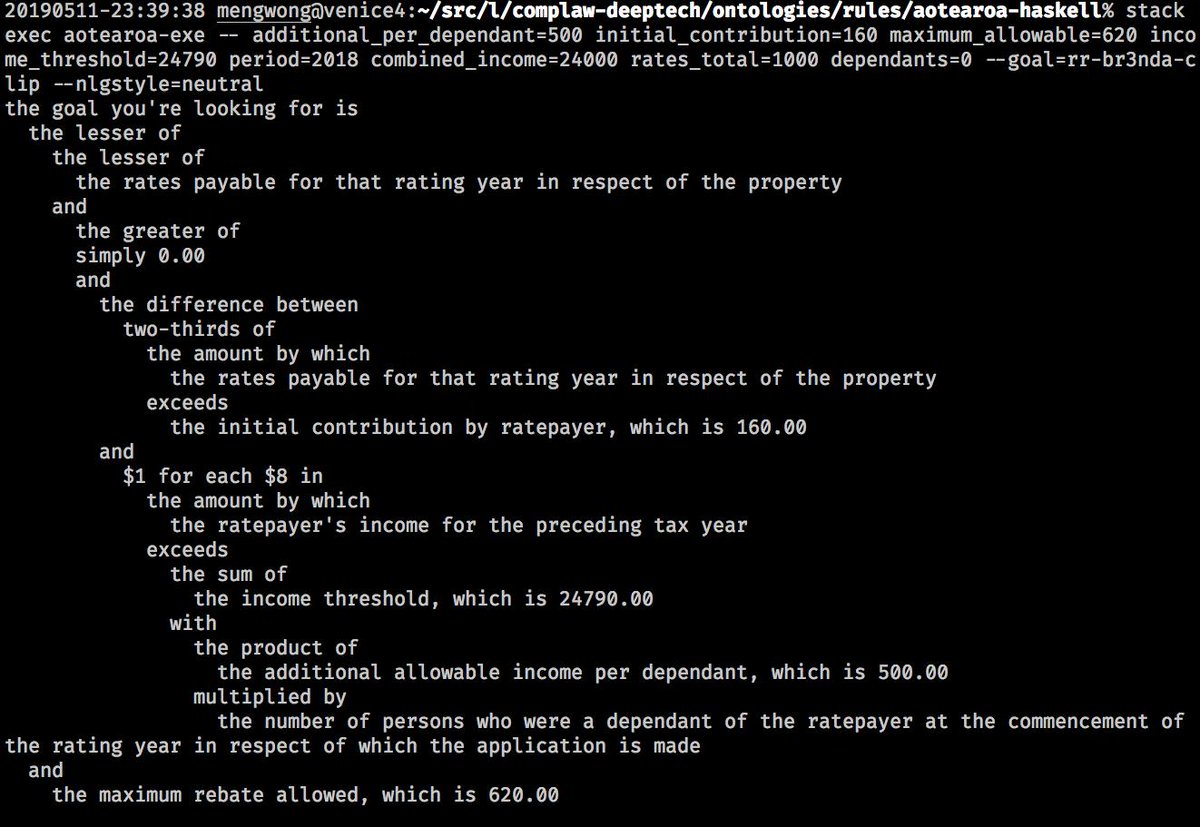
aotearoa-exe: src/Lib.hs:(181,1)-(192,47): Non-exhaustive patterns in function deobfuscate
Imagine a contract or legislative IDE giving you a similar warning: you left a major scenario unaddressed!
Once there exists source code for laws and contracts, there will be a proper Github for legal. Not just PDFs and .docx – those are warez.

